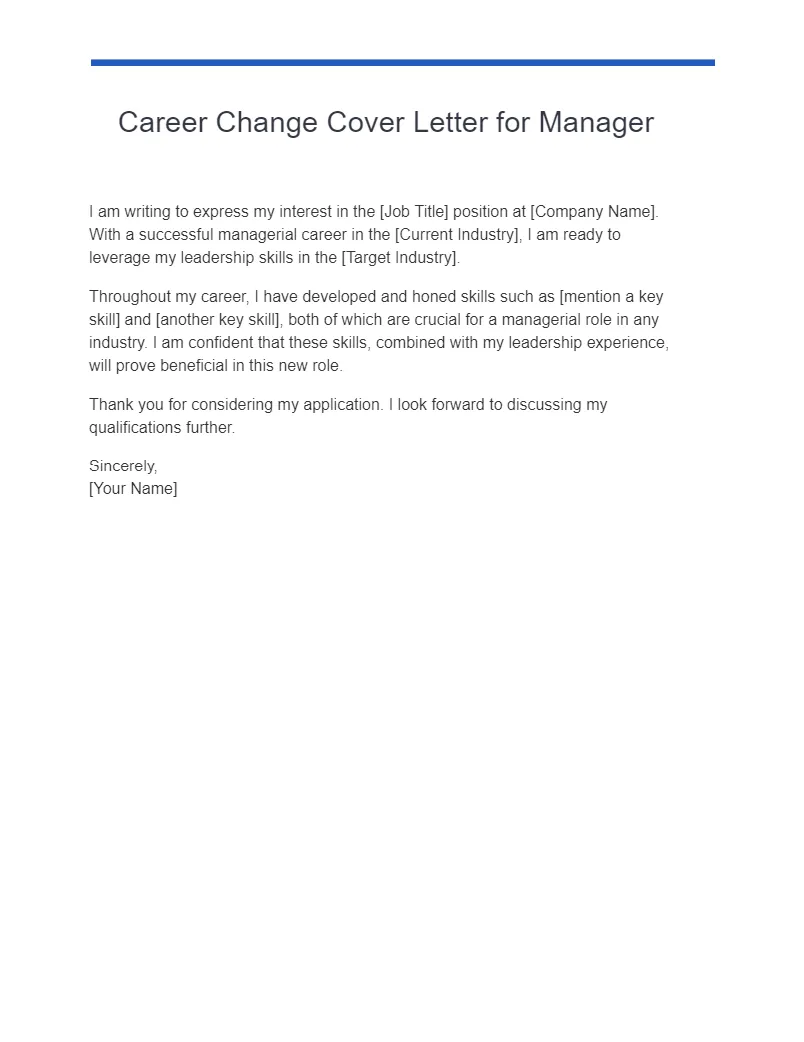Changing industries can be a daunting task, but a well-crafted cover letter can significantly increase your chances of landing your dream job. Your cover letter is your first opportunity to make a strong impression and demonstrate why you’re a valuable asset, even if your experience isn’t directly aligned with the new industry. This guide will provide you with cover letter secrets and strategies to help you navigate an industry change and secure your desired role. Let’s explore how to craft a compelling cover letter that highlights your transferable skills, showcases your enthusiasm, and ultimately, gets you noticed.
Crafting a Cover Letter for an Industry Change
When transitioning to a new industry, it’s crucial to shift your focus from your past job titles to the skills and experiences that are relevant to the target role. This section provides specific strategies to showcase your value effectively. Begin by understanding the key elements that need to be addressed in a cover letter when applying for a job in a new industry. It is all about proving that you can do the job, even if you have never done it before, so highlight what you bring to the table.
Highlighting Transferable Skills
One of the most critical aspects of a cover letter for an industry change is highlighting your transferable skills. These are the skills you’ve acquired in previous roles that are valuable and applicable in the new industry. These can include project management, communication, leadership, problem-solving, and technical proficiencies. Identify which skills align with the requirements of the new job and emphasize them in your cover letter. Do not assume the hiring manager will be able to do the work for you; make it easy for them to understand your value. Be clear and specific about your skills.
Identifying Your Key Skills
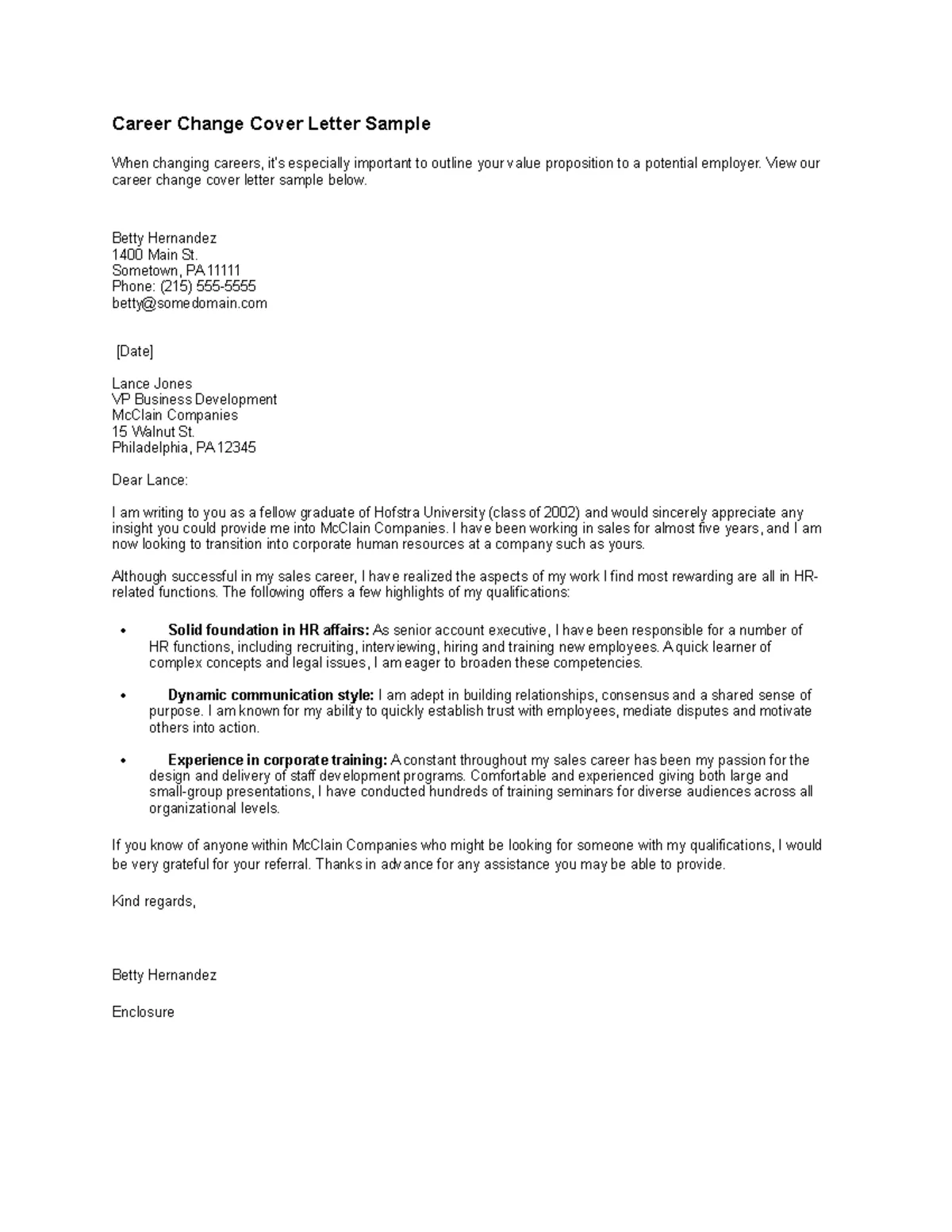
Begin by creating a list of all your skills, both hard and soft. Then, carefully review the job description for the target role. Identify the skills that the employer is looking for and match those with the skills on your list. Prioritize these skills in your cover letter, providing specific examples of how you’ve utilized them in the past. This demonstrates your ability to fulfill the job requirements and makes you an attractive candidate. Make sure your key skills are easily identifiable and visible to the hiring manager.
Showcasing Achievements
Instead of just listing your responsibilities, focus on your achievements. Quantify your accomplishments whenever possible. For example, instead of saying “Managed social media accounts,” say, “Increased social media engagement by 30% in six months.” Use the STAR method (Situation, Task, Action, Result) to structure your examples. This helps you provide a clear narrative that showcases your impact and the value you brought to your previous roles. This shows your abilities and your potential to bring value to your new role and new company.
Emphasizing Your Passion and Enthusiasm
Expressing genuine interest in the new industry is essential. Explain why you’re excited about this career change and what motivates you to pursue this specific role. Do you find that the mission of the company resonates with your values? Make it known! Your enthusiasm can help overcome any doubts the hiring manager might have about your lack of direct experience. Show that you’re eager to learn and contribute. Research the company’s values and mission statement and incorporate them into your cover letter to show your alignment with the organization.
Researching the Target Industry
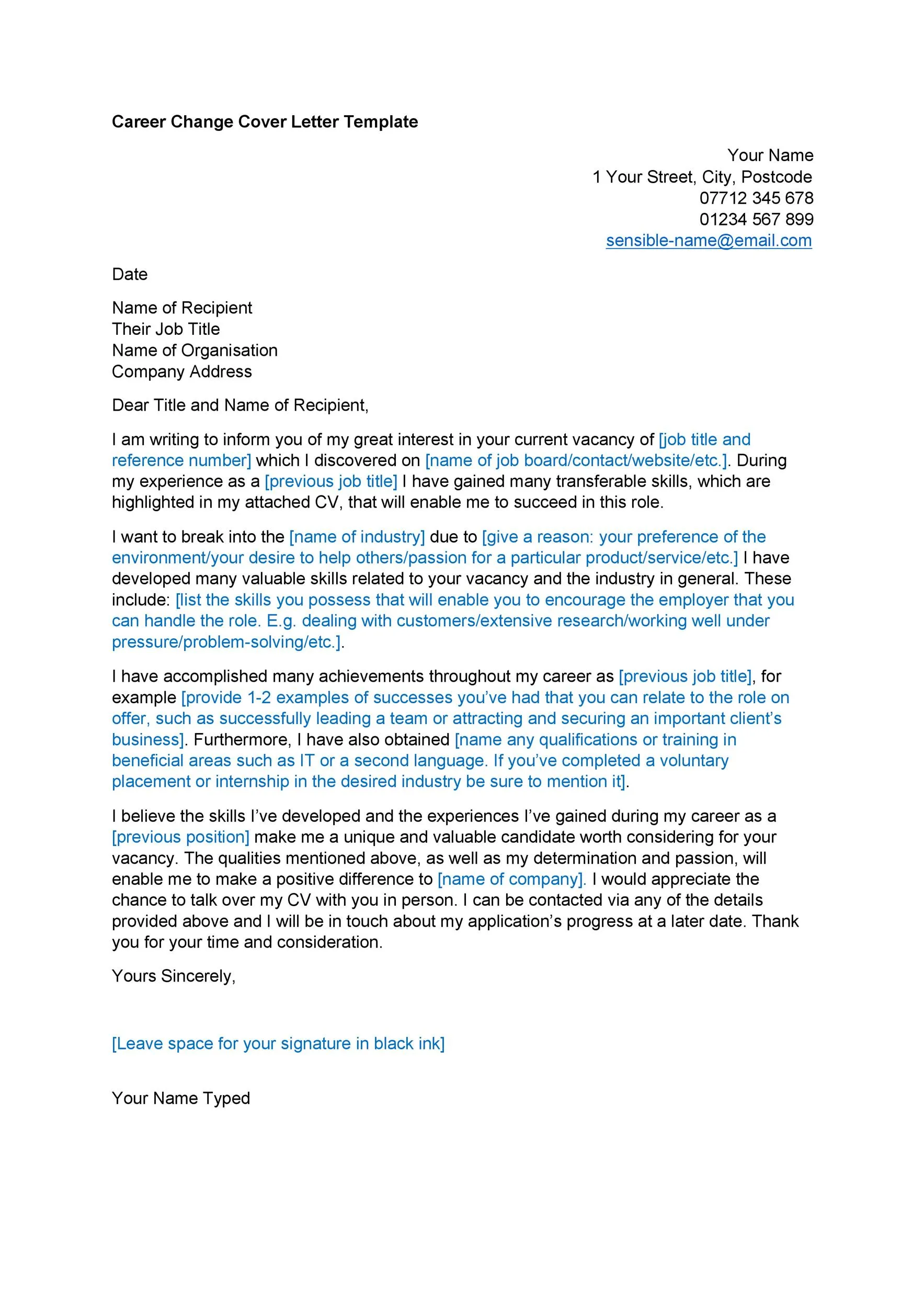
Thorough research is non-negotiable when changing industries. Understand the industry’s key trends, challenges, and language. This shows that you are taking the transition seriously and that you are committed to learning. Visit the company website and explore industry publications to showcase your commitment. This understanding will help you tailor your cover letter to the specific requirements of the new industry and demonstrate your understanding of the role and industry.
Understanding Industry-Specific Language
Familiarize yourself with the industry-specific terminology and jargon. Use these terms strategically in your cover letter to demonstrate your understanding and interest. This shows that you have a basic grasp of the industry. However, avoid using overly technical language if you’re applying for an entry-level position. Always use language that aligns with the company’s brand voice. Aligning your tone and choice of language will make you look like you already fit within the company culture.
Tailoring Your Cover Letter
Customizing your cover letter for each job application is critical. Do not send a generic cover letter. Tailor the content to the specific role and company. This means carefully reviewing the job description and addressing each of the key requirements. Personalize the letter to demonstrate your genuine interest in the company and the role. This effort shows that you are not just mass-applying and that you care about the specific opportunity and the company.
Structuring Your Cover Letter
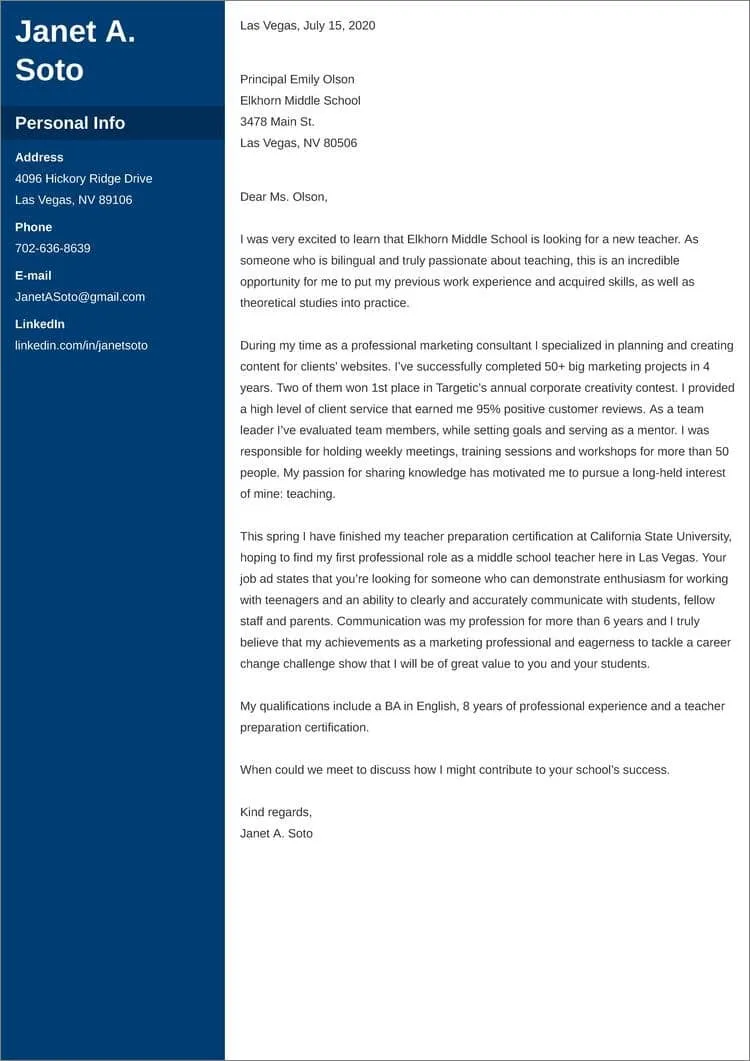
A well-structured cover letter is easy to read and conveys your message effectively. Pay attention to the structure of your cover letter, as it is just as important as the content. Each section must be clear and concise, and it must follow a logical flow. Follow a traditional cover letter format. This will help you make a strong first impression and demonstrate your professionalism to the hiring manager.
The Opening Paragraph
Start strong. Begin with a compelling opening that grabs the reader’s attention. Clearly state the position you’re applying for and where you found the job listing. Briefly mention your reason for transitioning industries and highlight your key skills or achievements that align with the role. This first paragraph should be concise and immediately convey your value to the company. Make the hiring manager want to read more! Consider using a strong statement of purpose or a captivating anecdote.
The Body Paragraphs
Use the body paragraphs to expand on your skills, experience, and enthusiasm. Provide specific examples that demonstrate your transferable skills and how you’ve achieved results in previous roles. Address any concerns the hiring manager might have about your lack of direct experience. Show, don’t tell. Be specific with your accomplishments and highlight achievements that are relevant to the new industry. Back up your claims with data whenever possible.
The Closing Paragraph
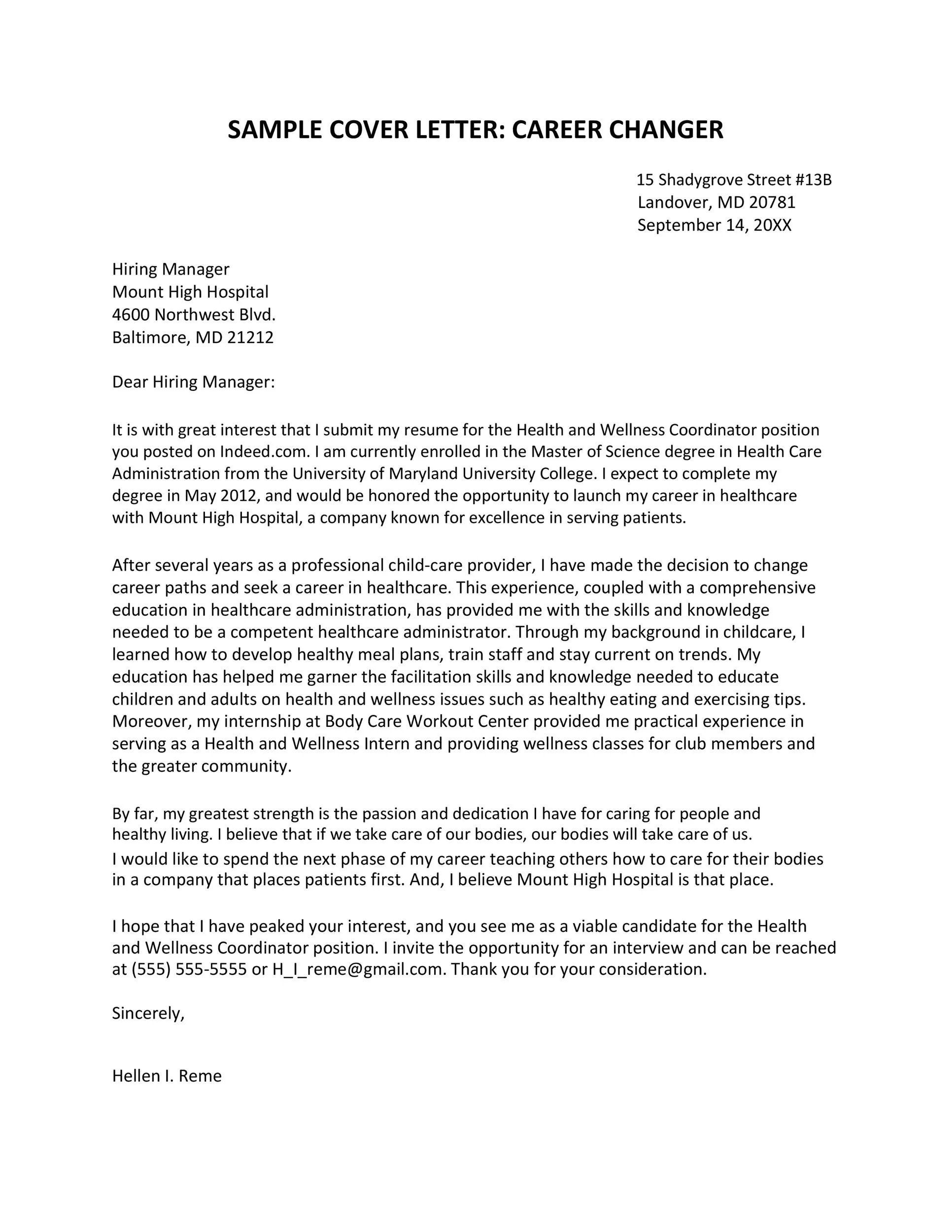
In your closing paragraph, reiterate your interest in the role and company. Thank the hiring manager for their time and consideration. Include a call to action, such as expressing your eagerness for an interview and providing your contact information. End on a positive note and express confidence in your ability to contribute to the organization. Show that you are excited about the opportunity and want to be invited for an interview.
Formatting and Presentation
Ensure your cover letter is easy to read and visually appealing. Use a professional font, appropriate margins, and clear headings and bullet points. Keep the letter concise, ideally no more than one page. Proofread carefully for any typos or grammatical errors. A well-formatted cover letter shows attention to detail and professionalism, which are important qualities in any industry. Maintain consistency in your formatting to enhance readability. Avoid using complex fonts or unnecessary colors.
Proofreading and Editing
Before submitting your cover letter, proofread it carefully to catch any errors. Errors can undermine your credibility and create a negative impression, even if you have an outstanding background. This final step is important and can make or break your chances of getting the job.
Checking for Grammatical Errors
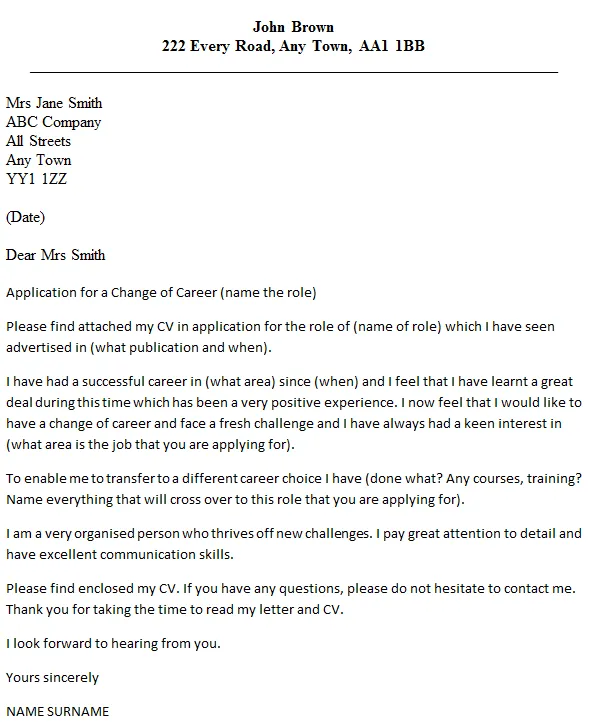
Grammar and spelling errors can detract from your professionalism. Use a grammar checker and read through your letter multiple times. Check for common mistakes, such as subject-verb agreement, punctuation errors, and incorrect word usage. Asking someone else to review your letter is always a good idea.
Ensuring Clarity and Conciseness
Ensure your cover letter is clear, concise, and easy to understand. Avoid using jargon that the hiring manager may not be familiar with, and keep your sentences and paragraphs short. Remove any unnecessary information or filler words. Be direct and get to the point. The goal is to communicate your value quickly and effectively.
Seeking Feedback
Ask a trusted friend, family member, or career counselor to review your cover letter. They can provide valuable feedback on clarity, grammar, and overall effectiveness. A second pair of eyes can often catch mistakes that you might have missed. Consider getting feedback from someone who works in the target industry. Incorporate the feedback into your final draft to improve your cover letter.
By following these cover letter secrets and strategies, you can significantly increase your chances of landing your dream job, even when changing industries. Focus on highlighting your transferable skills, demonstrating your enthusiasm, and tailoring your cover letter to each specific opportunity. A well-crafted cover letter is an investment that will help you stand out and achieve your career goals. Good luck with your job search!
